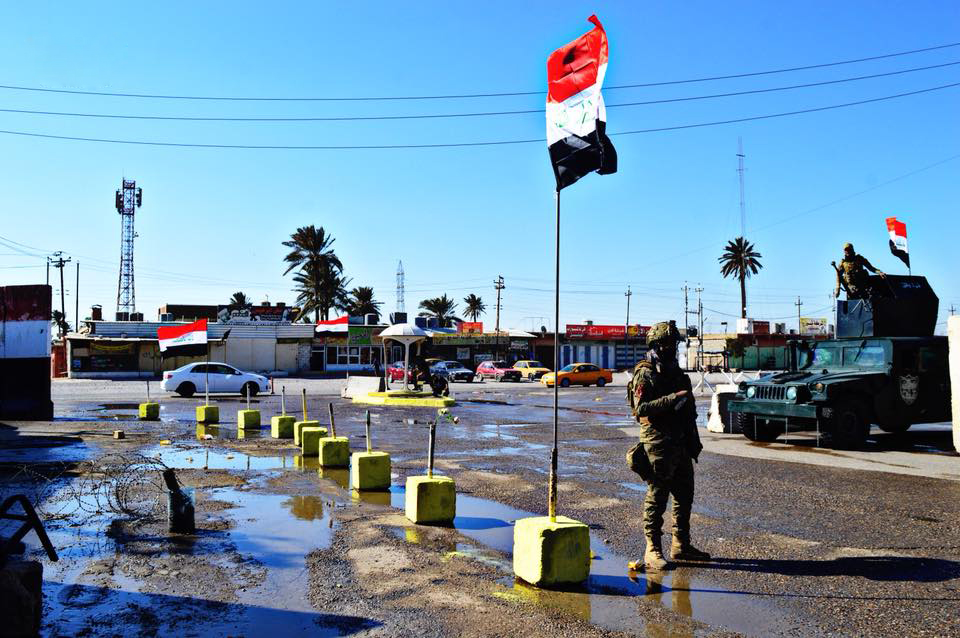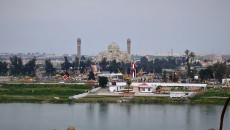The leading Kurdish parties nominate two candidates in one of electoral district of Salahaddin province for upcoming October 10th parliamentary elections.
The Kurdistan democratic party KDP led by Masoud Barzani nominated a candidate to win one of the four seats of electoral district two of Salhaddin province which is the district of Duz Khumatu.
The province of Salahaddin has 12 seats in Iraqi parliament and has been divided into three electoral districts, a quota seat for a woman candidate in each district.
The Kurdistan alliance formed by the Patriotic union of Kurdistan PUK, led by Bafel Talabani, and the Change (Gorran) movement also nominated a candidate for the same electoral district.
An independent woman candidate has registered to run for the same electoral district yet lately has decided to leave the race.
"Kurds look for a seat in Duz Khumatu where they had three candidates for KDP, Kurdistan alliance and an independent candidate whom stopped campaign and withdrew," said Sirwan Habib, member of election committee of Duz office for the independent high Electoral Commission IHEC.
In the last elections of May 2018, six Kurdish nominees from different lists and alliances could not make it to the Iraqi parliament in Salahaddin.
The KDP boycotted 2018 elections in the disputed territories following October 2017 events when Iraqi forces launched "Law imposing" process which ousted Kurdish parties and the Peshmerga from the positions they controlled following emergence of Islamic State in Iraq and Syria in 2014.
"We have one nominee and hope Kurds get 15,000 votes," said Bakhtiyar Hijran, in charge of KDP office in Duz. "If the turnout by our supporters will be high, I think the Kurds can earn a seat."
We have one nominee and hope Kurds get 15,000 votes
Electoral district two of Salahaddin embraces the districts and sub-districts of Duz, home to 150,000 Kurds, Arabs and Turkmens, beside Balad, Dujail, Yathrib and Zilouya, where 62 candidates compete to win three seats.
The new electoral law ratified last November, a key demand of demonstrators in 2019, changes each of the country’s 18 provinces into several electoral districts in order to prevent parties from running on unified lists, which has in the past helped them easily take all the seats in a specific province. Instead, the seats would go to whoever gets the most votes in the electoral districts.
The 329-member house of representatives was elected in May 2018. The vote is held every four years, but the protesters have been demanding early elections.
The KDP believes multi electoral district system is a blow to the Kurds as a minority in Salhaddin while PUK thinks on the contrary it is fair.
The PUK has earned 17,000 votes in 2014 elections yet could not win a seat, which dropped into less than 5,000 votes in 2018 elections.
"The multi electoral system is in our favor as we have one nominee and we work hard to earn adequate votes for him, a chance to win a seat" said Mohammed Mahmoud, in charge of PUK's Hamrin office.
Mahmoud argues back in 2015, their candidate karim Shukur has got the highest votes as a single candidate yet he could not make it to the parliament since PUK's list could not gather enough votes thus lost all their votes.
"In this election, the voters of Gorran and communist party will vote for our candidate so the chances for Shukur this time are better," he added.
"Kurds will make 15,000 votes. 80% of Kurdish voters are supporters of PUK."
Kurds will make 15,000 votes. 80% of Kurdish voters are supporters of PUK
Kurds are worried about their voters whom left Duz after October 2017 events to the adjacent Kurdish region. It has not been determined how they can vote.
Upon one of the key demands of Iraq 2019 protests, the Iraqi parliament has amended the election system from provinces into electoral districts where 19 provinces were divided into 83 electoral districts. Out of 40 million population, 25 million eligible voters run to the ballots to elect only 329 members out of 3,234 nominees into Iraqi parliament.






